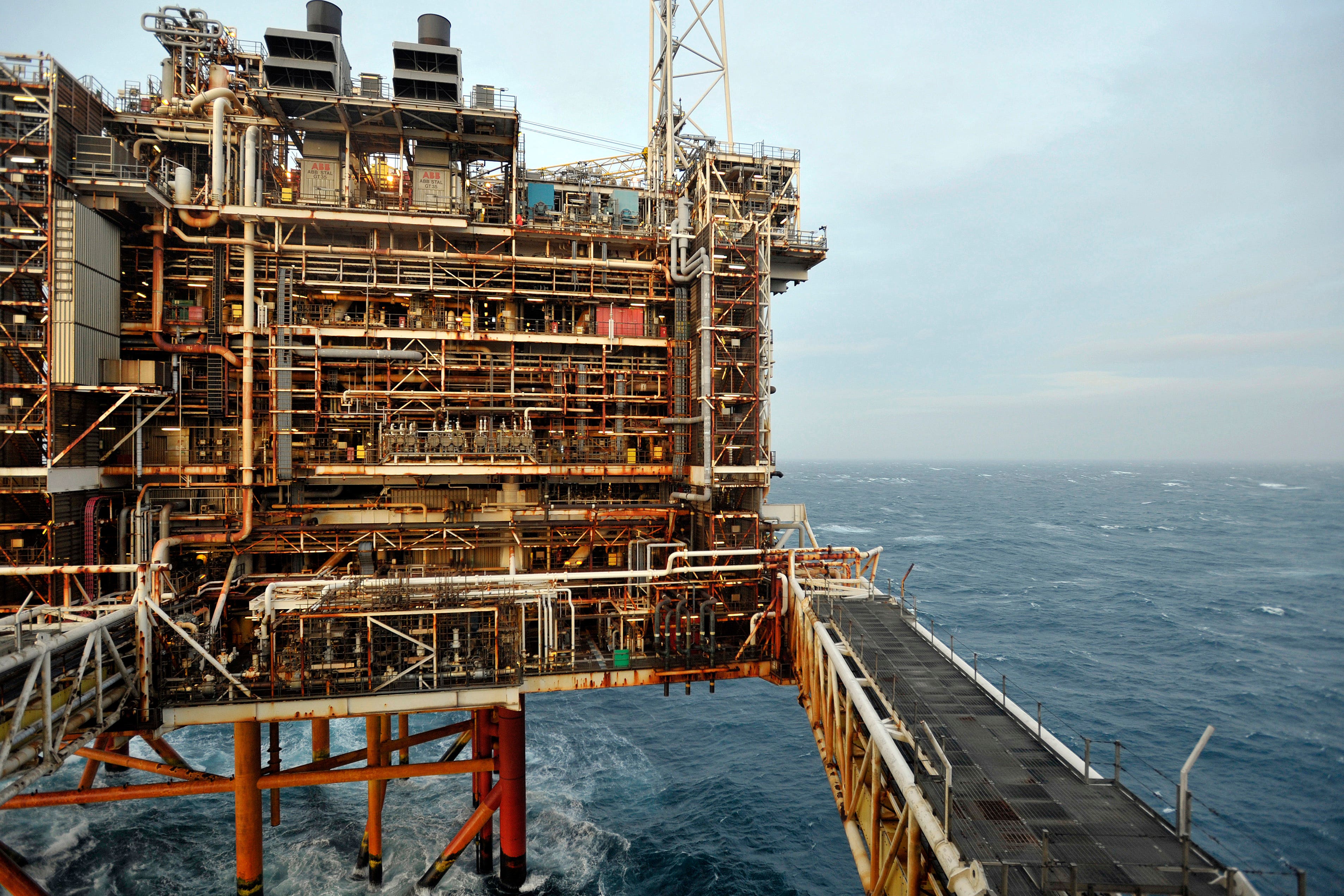North Sea firms must do more to stop routine flaring, authority says
The sector’s major players were told they must do more if they are to stop the routine burning and venting of excess gas by 2030.

Oil and gas firms are aiming to launch platforms which would target 1.5 billion barrels worth of fuel currently locked beneath the North Sea, the North Sea Transition Authority said.
The annual meeting of the authority was held on Thursday, at which the sector’s major players were told they must do more if they are to stop the routine burning and venting of excess gas by 2030.
Since the beginning of 2022 seven projects, capable of producing 100 million barrels, have been approved by the North Sea Transition Authority, which would see £1.1 billion spent to launch the schemes.
The authority said after the meeting that North Sea operators planned to progress 22 projects in the coming years which would target 1.5 billion barrels.
I am confident that today’s meeting of the North Sea’s biggest players will lead to real progress
It said these would be subject to robust emissions checks, and that they were at various stages of development.
Stuart Payne, chief executive of the authority, said: “The North Sea boasts a vast array of oil and gas, wind and storage resources which can secure the UK’s supply of cleanly produced energy, rapidly reduce its greenhouse gas emissions, and support hundreds of thousands of skilled jobs.”
Production efficiency in the North Sea has improved, the authority said.
Widespread maintenance shutdowns in 2021 saw the efficiency measure, which indicates how well companies are using their assets, drop to 73%.
But, the authority said, it had increased to 78% in 2022.
And at the yearly meeting operators were praised for recent emissions reductions, including from flaring which has been halved since 2018.
It said these reductions were expected to continue, with firms highlighting plans to improve energy efficiency and reduce flaring, which is the burning of gas produced when drilling for oil.
But the authority warned that operators must do more if they are to meet its expectation of eliminating routine flaring and venting by 2030.
It also said operators must invest in powering their platforms with clean electricity to meet and surpass the North Sea Transition Deal target of lowering overall production emissions by 50% by 2030, and preserve their social licence to operate.
The authority said it expected decisions to be made this year on the preferred development options for two electrification projects.
It said after the meeting that options to repurpose and reuse oil and gas infrastructure for low-carbon projects including hydrogen and carbon storage are being identified, forming another pillar of the authority’s drive to integrate the UK’s offshore energy systems and accelerate the transition to net zero.
The authority will soon announce the awards for the country’s first carbon storage licensing round, which received 26 bids from 19 companies.
Mr Payne said he was “confident that today’s meeting of the North Sea’s biggest players will lead to real progress”.
He said: “Their open and constructive discussions have helped set the tone for the coming months, placing a sharp focus on actions and projects which accelerate the transition to net zero.”





